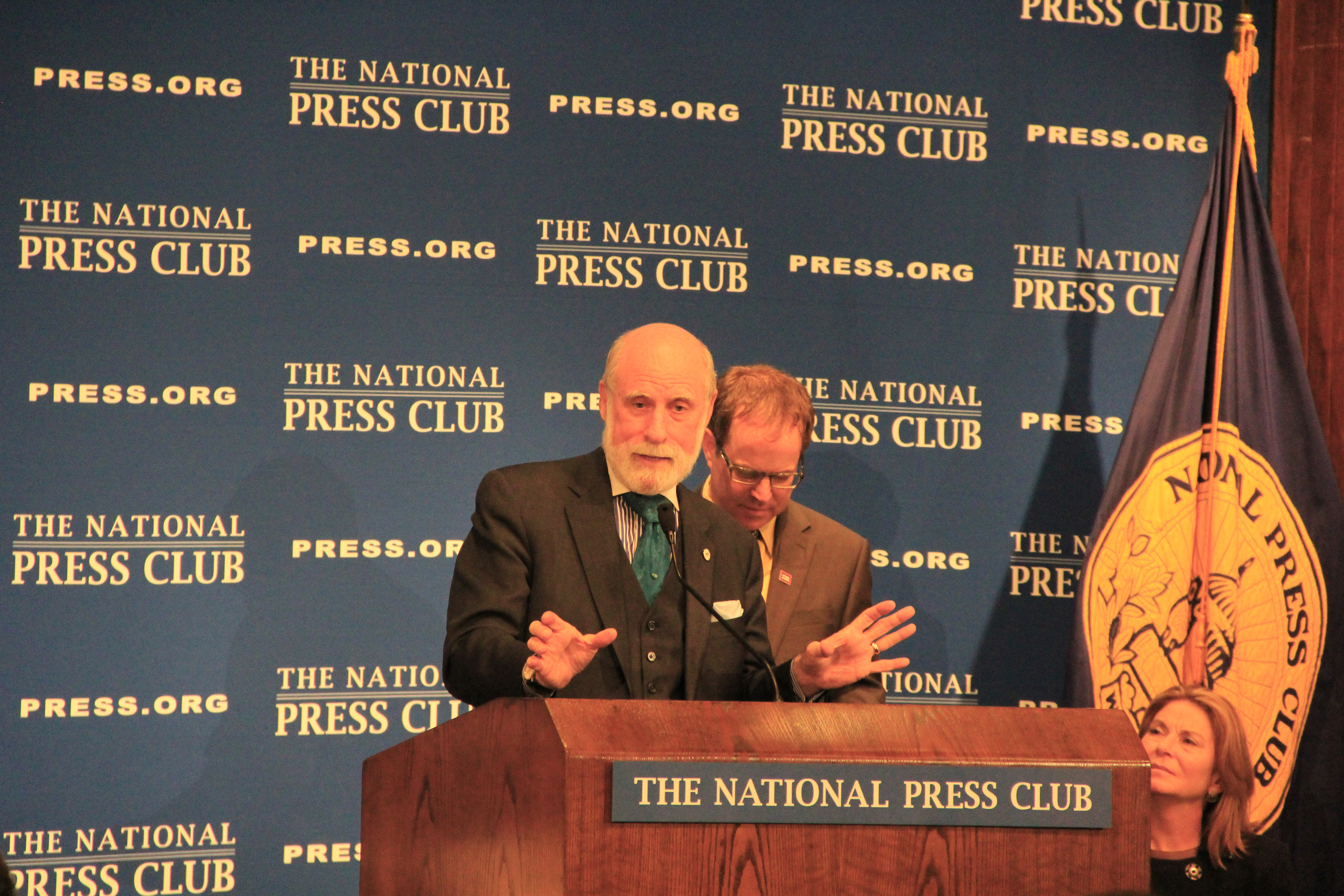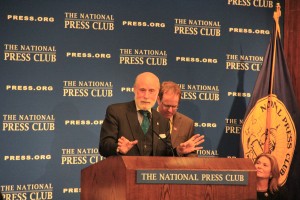WASHINGTON — An explosion in the number of devices that needed Internet protocol addresses as part of the “Internet of Things” has created a slower Internet for some users and a series of website problems, online pioneer Vint Cerf said Monday.
Cerf, a founder of the Internet and chief Internet evangelist for Google, told an audience at the National Press Club that the world needs more Internet addresses.
“The next wave of stuff is the Internet of Things,” Cerf said. “Every appliance you can possibly imagine, you’re shifting from electromechanical controls to programmable controls. And once you put a computer inside of anything, there’s an opportunity to put it on the net.”
Cerf said he and Bob Kahn, another Internet co-founder, estimated that the Internet would need about 4.3 billion addresses. Now, Cisco Systems Inc. estimates about 50 billion devices will be connected to the Internet by 2020, Cerf said.
For some consumers, the change has already begun. Philips, for instance, has produced a light bulb that allows owners to control the hue and intensity, which requires an Internet address.
Internet users, Cerf said, need to switch to the latest form of IP address, IPv6, which uses more numbers to speed up access to sites. Users only need to call their Internet service provider to get switched to IPv6, he said.
IPv6 has about 340 undecillion number possibilities or about 340 trillion trillion trillion compared to the 4.3 billion in the last type of address, IPv4, which ran out of numbers in 2011.
ARIN, the American Registry for Internet Numbers, where Cerf serves as chairman, is the not-for-profit that administers both old and new IP addresses.
John Curran, ARIN’s CEO, said the vast majority of people do not realize that his team is retooling the Internet behind the scenes. He called it “the world’s largest technical change project.”
But the change has affected the way websites work and will continue until the project is complete.
“You might get told that you can put an audio file or a podcast online,” Curran said. But many site owners do not realize that some users are using the new IP address form, making it harder to read or listen to.
According to Google, about 14.5% of its customers are accessing the search engine with the new IPv6 address, he said.
“No one seems to know this is happening,” Curran said of the big change under way. “You need to ask about this because it affects everyone. There’s no one on the Internet it doesn’t affect.”
“Google, Facebook, Bing, YouTube, are all IPv6 enabled, but if your content isn’t enabled, it will be slower and if you’re streaming media or audio, it might get broken up because it has to go the long way around.”
So far, only about 3 to 4% of Internet users have IPv6, Cerf said.
The Internet enthusiast believes the spread of new addresses will have multiple advantages.
“I think ultimately when we finally get [IPv6] everywhere, people will have the flexibility to run end-to-end security and safety,” he said. “They’ll be able to cluster things together and have hubs that manage access to them which we’re going to need for the Internet of Things.”



